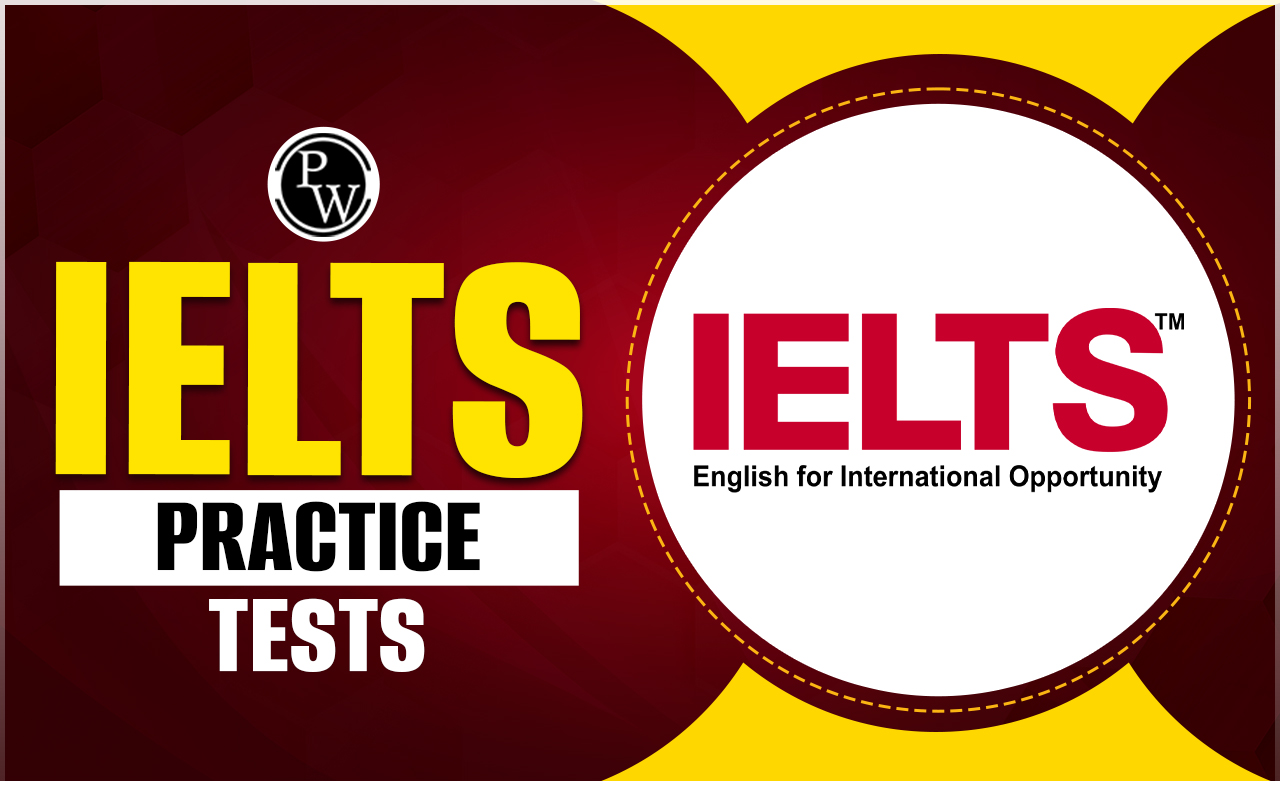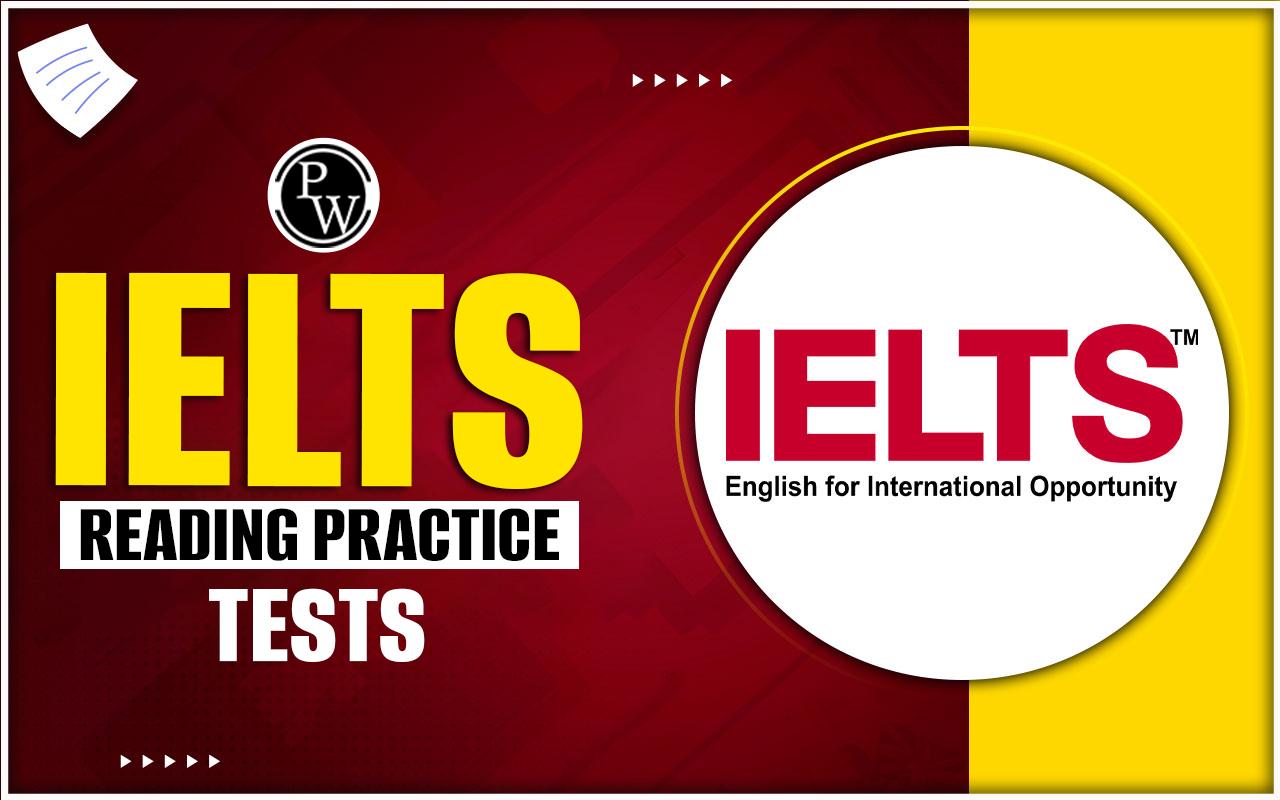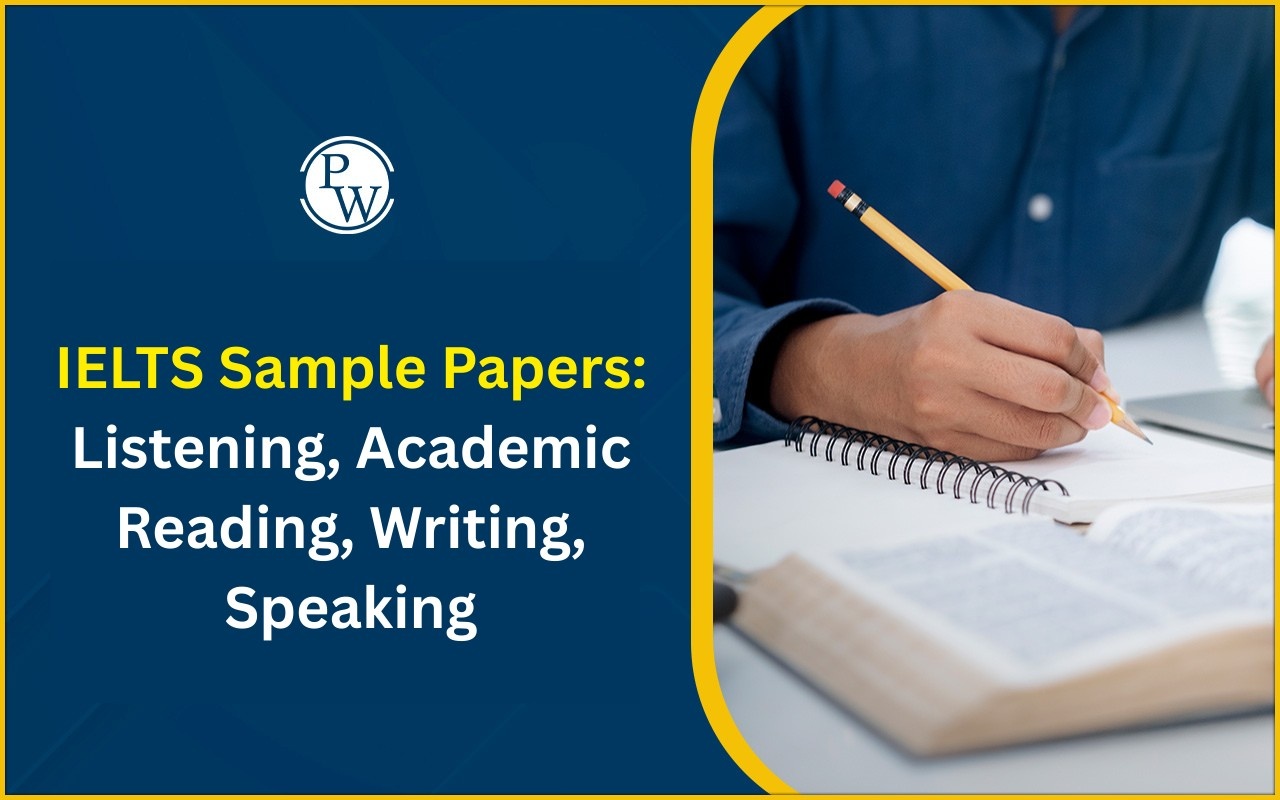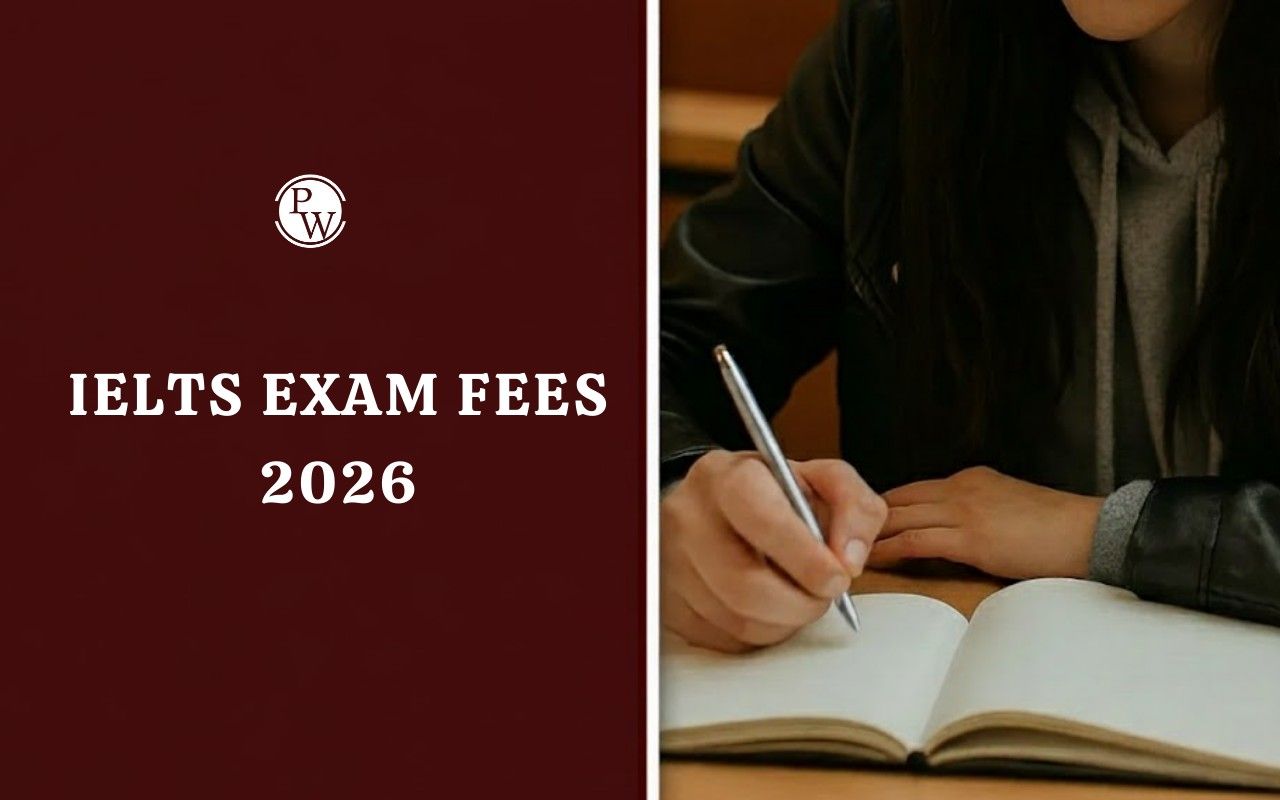
The Persuaders IELTS Reading Answers: The IELTS reading module offers plenty of opportunities for students to improve their overall IELTS band score. In this section, different comprehensive passages are included where students can answer questions using direct references from the passage.
“The Persuaders IELTS Reading Answers” is one of the passage topics in IELTS reading . Generally, passages are repetitive in the IELTS exam, therefore, practicing “The Persuaders IELTS Reading Answers” topic can help students familiarize themselves with the question pattern. There will be a total of 9 questions divided into two subsections. Read the below passage carefully to maximize your IELTS band score .Free IELTS Reading Practice Tests, Cambridge Sample Test PDF
The Persuaders IELTS Reading Answers Passage
You should spend about 20 minutes on Questions 1-9, which are based on the "The Persuaders IELTS Reading Answers" Passage below.The Persuaders IELTS Reading Answers
1. We have long lived in an age where powerful images, catchy soundbites and too-good-to miss offers bombard us from every quarter. All around us the persuaders are at work. Occasionally their methods are unsubtle -the planting kiss on a baby’s head by a wannabe political leader, or a liquidation sale in a shop that has been “closing down” for well over a year, but generally the persuaders know what they are about and are highly capable. Be they politicians, supermarket chains, salespeople or advertisers, they know exactly what to do to sell us their images, ideas or produce. When it comes to persuasion, these giants rule supreme. They employ the most skilled image-makers and use the best psychological tricks to guarantee that even the most cautious among us are open to manipulation. 2. We spend more time in them than we mean to, we buy 75 percent of our food from them and end up with products that we did not realize we wanted. Right from the start, supermarkets have been ahead of the game. For example, when Sainsbury introduced shopping baskets into its 1950s stores, it was a stroke of marketing genius. Now shoppers could browse and pick up items they previously would have ignored. Soon after came trolleys, and just as new roads attract more traffic, the same applied to trolley space. Professor Merlin Stone, IBM Professor of Relationship Marketing at Bristol Business School, says aisles are laid out to maximize profits. Stores pander to our money-rich, time-poor lifestyle. Low turnover products — clothes and electrical goods are stocked at the back while high turnover items command position at the front. 3. Stone believes supermarkets work hard to “stall” us because the more time we spend in them, the more we buy. Thus, great efforts are made to make the environment pleasant. Stores play music to relax us and some even pipe air from the in-store bakery around the shop. In the USA, fake aromas are sometimes used. The smell is both the most evocative and subliminal sense. In experiments, pleasant smells are effective in increasing our spending. A casino that fragranced only half its premise saw profit soar in the aroma-filled areas. The other success story from the supermarkets’ perspective is the loyalty card. Punters may assume that they are being rewarded for their fidelity, but all the while they are trading information about their shopping habits. Loyal shoppers could be paying 30% more by sticking to their favourite shops for essential cosmetics. 4. Research has shown that 75 percent of profit comes from just 30 percent of customers. Ultimately, reward cards could be used to identify and better accommodate these “elite” shoppers. It could also be used to make adverts more relevant to individual consumers – rather like Spielberg’s futuristic thriller Minority Report, in which Tom Cruise’s character is bombarded with interactive personalised ads. If this sounds far-fetched, the data-gathering revolution has already seen the introduction of radio-frequency identification to electronically tag products to see who is buying what,FRID means they can follow the product into people’s homes. 5. No matter how savvy we think we are to their ploys, the ad industry still wins. Adverts focus on what products do or on how they make us feel. Researcher Laurette Dube, in the Journal of Advertising Research, says when attitudes are based on “cognitive foundations” (logical reasoning), advertisers use informative appeals. This works for products with a little emotional draw but high functionality, such as bleach. Where attitude is based on effect (i.e, emotions), ad teams try to tap into our feelings. Researchers at the University of Florida recently concluded that our emotional responses to adverts dominate over “cognition”. 6. Advertisers play on our need to be safe (commercials for insurance), to belong (make a customer feel they are in the group fashion ads) and for self-esteem (aspirational adverts). With time and space at a premium, celebrities are often used as a quick way of meeting these needs – either because the celeb epitomizes success or because they seem familiar and so make the product seem “safe”. A survey of 4,000 campaigns found ads with celebs were 10 percent more effective than without. Humour also stimulates a rapid emotional response. Heiman Chung, writing in the International Journal of Advertising, found that funny ads were remembered for longer than straight ones. Combine humour with sexual imagery – as in Wonderbra’s “Hello Boys” ads-and you are on to a winner. 7. Slice-of-life ads are another tried and tested method-they paint a picture of life as you would like it, but still, one that feels familiar. Abhilasha Mehta, in the Journal of Advertising Research, noted that the more one’s self-image tallies with the brand being advertised, the stronger the commercial. Ad makers also use behaviorist theories, recognizing that the more sensation we receive from an object, the better we know it. If an advert for a chocolate bar fails to cause salivation, it has probably failed. No wonder advertisements have been dubbed the “nervous system of the business world”. 8. Probably all of us could make a sale if the product was something we truly believed in, but professional salespeople are in a different league-the best of them can always sell different items to suitable customers in the best time. They do this by using very basic psychological techniques.Stripped to its simplest level, selling works by heightening the buyer’s perception of how much they need a product or service. Buyers normally have certain requirements by which they will judge the suitability of a product. The seller, therefore, attempts to tease out what these conditions are and then explains how their products’ benefit can meet these requirements. 9. Richard Hession, author of Be a Great Salesperson says it is human nature to prefer to speak rather than listen, and good salespeople pander to this. They ask punters about their needs and offer to work with them to achieve their objectives. As a result, the buyer feels they are receiving a “consultation” rather than a sales pitch. All the while, the salesperson presents with a demeanour that takes it for granted that the sale will be made. Never will the words “if you buy” be used, but rather “when you buy”. 10. Dr Rob Yeung, a senior consultant at business psychologists Kiddy and Partner, says most salespeople will build up a level of rapport by asking questions about hobbies, family and lifestyle. This has the double benefit of making the salesperson likeable while furnishing him or her with more information about the client’s wants. Yeung says effective salespeople try as far as possible to match their style of presenting themselves to how the buyer comes across. If the buyer cracks jokes, the salespeople will respond in kind. If the buyer wants detail, the seller provides it, if they are more interested in the feel of the product, the seller will focus on this. At its most extreme, appearing empathetic can even include the salesperson attempting to “mirror” the hobby language of the buyer. 11. Whatever the method used, all salespeople work towards one aim: “closing the deal”. In fact, they will be looking for “closing signals” through their dealings with potential clients. Once again the process works by assuming success. The buyer is not asked “are you interested?” as this can invite a negative response. Instead, the seller takes it for granted that the deal is effectively done: when the salesman asks you for a convenient delivery date or asks what colour you want, you will probably respond accordingly. Only afterwards might you wonder why you proved such a pushover.The Persuaders IELTS Reading Answers Sample Questions
IELTS Reading: Choose the correct letter A, B, C, or D [Q.1 – Q.3]1. What is the primary reason supermarkets encourage shoppers to spend more time in stores? A. To help customers find all their needs conveniently. B. To introduce them to new products. C. To maximize their purchases. D. To create a pleasant shopping experience. 2. Why are loyalty cards appealing to supermarkets? A. They reward customers for repeat purchases. B. They provide data about consumer habits. C. They help attract new customers. D. They reduce marketing expenses. 3. According to Dr. Rob Yeung, how do salespeople build rapport with customers? A. By demonstrating extensive product knowledge. B. By discussing customers’ personal interests. C. By focusing only on the product’s benefits. D. By offering significant discounts.
IELTS Reading: Match the Information to the Paragraph [Q.4 – Q.9] Which paragraph contains the following information?4. The psychological techniques used by salespeople to ensure a sale. 5. How supermarkets manipulate the environment to increase spending. 6. The use of reward systems to identify and target loyal customers. 7. The role of celebrities and humor in making advertisements effective. 8. The relationship between a buyer’s self-image and their response to advertising. 9. The assumption-based language employed by salespeople during interactions. Also Read:
- Should You Use All Capital Letters in the IELTS Listening and Reading Tests
- IELTS Reading Mistakes
- How to Improve IELTS Reading Score
- How to Manage Time in IELTS Reading
The Persuaders IELTS Reading Answers with Explanation
- What is the primary reason supermarkets encourage shoppers to spend more time in stores? Answer: C. To maximize their purchases. Explanation : Paragraph B discusses how supermarkets layout their stores and strategically design the store to increase the overall spending time of customers leading to high purchases.
- Why are loyalty cards appealing to supermarkets? Answer: B. They provide data about consumer habits. Explanation : Paragraph C explains the use of loyalty cards to gather consumers' shopping habits. These cards are used to make a personalized shopping experience among customers hereby, increasing the overall purchase of the store.
- According to Dr. Rob Yeung, how do salespeople build rapport with customers? Answer: B. By discussing customers’ personal interests. Explanation : In Paragraph J, Dr. Rob Yeung states “Most salespeople will build up a level of rapport by asking questions about hobbies, family and lifestyle. This has the double benefit of making the salesperson likeable while furnishing him or her with more information about the client’s wants. “
- The psychological techniques used by salespeople to ensure a sale. Answer: H Explanation : Paragraph H discusses how the salesperson teases out customers to heighten their needs for any product thereby increasing the sale of the product.
- How supermarkets manipulate the environment to increase spending. Answer: C Explanation : Paragraph C explains various strategies used by supermarkets to create a pleasant shopping environment for their customers. Some common strategies mentioned in the passage are the use of music and aromas to relax customers.
- The use of reward systems to identify and target loyal customers. Answer: D Explanation : Paragraph D mentions “Reward cards could be used to identify and better accommodate these “elite” shoppers.”
- The role of celebrities and humor in making advertisements effective. Answer: F Explanation : Paragraph F discusses the use of celebrity endorsements to gather attention from a large audience. Using celebrities in ads makes them more effective and funny ads engage the audience emotionally for a longer period.
- The relationship between a buyer’s self-image and their response to advertising. Answer: G Explanation : In Paragraph G, it is mentioned that the more one’s self-image tallies with the brand being advertised, the stronger the commercial.
- The assumption-based language employed by salespeople during interactions. Answer: K Explanation : Paragraph K mentions the use of assumption-based language such as "when you buy" in place of "if you buy," is assumed to be a deal-closer interaction by many effective salespeople.
| IELTS Exam Important Links | |
|---|---|
| IELTS Reading Band Score | IELTS Listening Band Score |
| IELTS Speaking Band Score | IELTS Writing Band Score |
Tips for Answering The Persuaders IELTS Reading Answers
Here are some effective tips and tricks for answering “The Persuaders IELTS Reading Answers” for IELTS exam reading section:- Pay attention to key concepts related to psychological techniques.
- Focus on cause-and-effect relationships.
- Identify how consumer behavior is targeted.
- Understand the difference between factual and emotional appeals.
- Look for the language used in sales situations.
- Be cautious with subtle details about statistics or surveys.
How to Manage Time in IELTS Reading
Guidance of PW IELTS
Physics Wallah offers a few popular online IELTS courses for students. To better prepare for the exam, follow the latest IELTS articles.| IELTS Exam Other Related Links | |
|---|---|
| IELTS Registration | IELTS Eligibility Criteria |
| IELTS Exam Pattern | IELTS Syllabus |
| IELTS Exam Dates | IDP IELTS Test Centers |
The Persuaders IELTS Reading Answers FAQs
What is the main focus of "The Persuaders" passage?
"The Persuaders" passage mainly focuses on various techniques used by supermarkets to increase sales of their products such as psychological tricks, emotional appeals, and personalized marketing strategies.
What role do emotions play in advertising?
Many supermarkets and marketing agencies target the emotions of consumers to make their products more appealing. The use of funny and humorous ads and celebrity endorsements can connect people emotionally to the product.
How do loyalty cards benefit supermarkets?
Loyalty cards are used to track “elite” consumers. This card allows supermarkets to track consumer behaviour and their shopping habits, thus, ensuring personalized rewards and shopping experiences for the targeted consumer.
What is a key selling technique used by professional salespeople?
Some successful key selling techniques used by professional salespeople are using celebrities to attract buyers, use of music and aroma to relax buyers, understanding buyer needs, use of assumptive language, and many more.
🔥 Trending Blogs
Talk to a counsellorHave doubts? Our support team will be happy to assist you!

Check out these Related Articles
Free Learning Resources
PW Books
Notes (Class 10-12)
PW Study Materials
Notes (Class 6-9)
Ncert Solutions
Govt Exams
Class 6th to 12th Online Courses
Govt Job Exams Courses
UPSC Coaching
Defence Exam Coaching
Gate Exam Coaching
Other Exams
Know about Physics Wallah
Physics Wallah is an Indian edtech platform that provides accessible & comprehensive learning experiences to students from Class 6th to postgraduate level. We also provide extensive NCERT solutions, sample paper, NEET, JEE Mains, BITSAT previous year papers & more such resources to students. Physics Wallah also caters to over 3.5 million registered students and over 78 lakh+ Youtube subscribers with 4.8 rating on its app.
We Stand Out because
We provide students with intensive courses with India’s qualified & experienced faculties & mentors. PW strives to make the learning experience comprehensive and accessible for students of all sections of society. We believe in empowering every single student who couldn't dream of a good career in engineering and medical field earlier.
Our Key Focus Areas
Physics Wallah's main focus is to make the learning experience as economical as possible for all students. With our affordable courses like Lakshya, Udaan and Arjuna and many others, we have been able to provide a platform for lakhs of aspirants. From providing Chemistry, Maths, Physics formula to giving e-books of eminent authors like RD Sharma, RS Aggarwal and Lakhmir Singh, PW focuses on every single student's need for preparation.
What Makes Us Different
Physics Wallah strives to develop a comprehensive pedagogical structure for students, where they get a state-of-the-art learning experience with study material and resources. Apart from catering students preparing for JEE Mains and NEET, PW also provides study material for each state board like Uttar Pradesh, Bihar, and others
Copyright © 2026 Physicswallah Limited All rights reserved.









